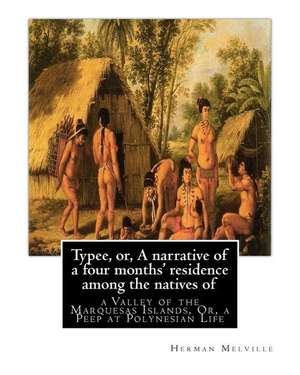Typee, Or, a Narrative of a Four Months' Residence Among the Natives of
Autor Herman Melvilleen Limba Engleză Paperback
Preț: 75.34 lei
Nou
Puncte Express: 113
Preț estimativ în valută:
14.42€ • 15.66$ • 12.11£
14.42€ • 15.66$ • 12.11£
Carte disponibilă
Livrare economică 01-15 aprilie
Preluare comenzi: 021 569.72.76
Specificații
ISBN-13: 9781535471435
ISBN-10: 1535471433
Pagini: 172
Dimensiuni: 203 x 254 x 9 mm
Greutate: 0.35 kg
ISBN-10: 1535471433
Pagini: 172
Dimensiuni: 203 x 254 x 9 mm
Greutate: 0.35 kg
